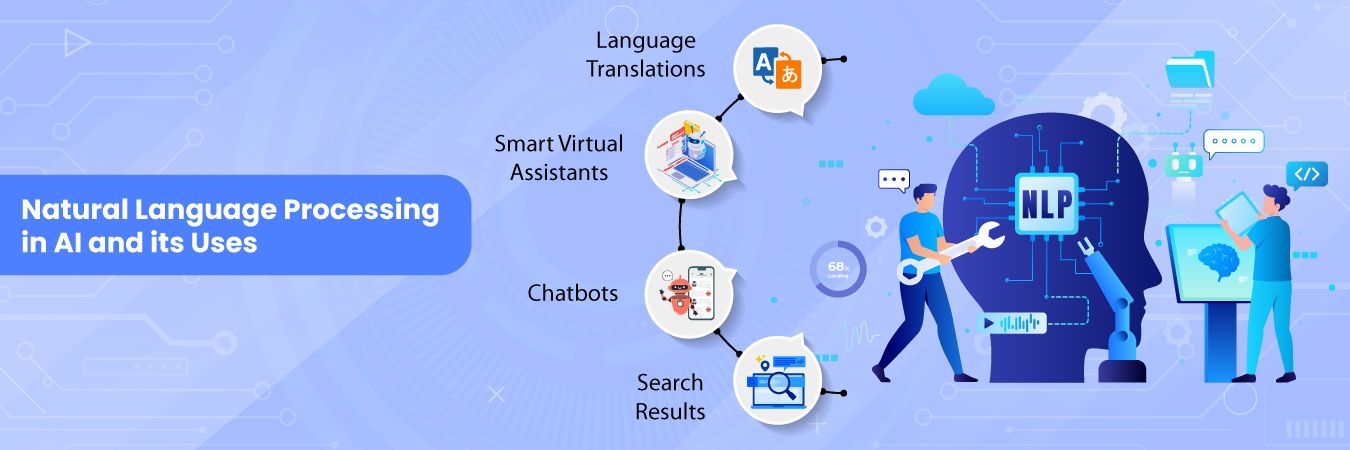In recent years, the field of Artificial Intelligence (AI) has seen tremendous growth and advancements. One prominent area within AI is Natural Language Processing (NLP), which focuses on the interaction between computers and human language. NLP enables computers to understand, interpret, and respond to human language, opening up new possibilities in various industries, especially in the tech sector.
The Basics of Natural Language Processing
Natural Language Processing is a subfield of AI that combines linguistics, computer science, and statistics to enable computers to understand and interact with human language in a meaningful way. It involves the use of algorithms and machine learning techniques to process, analyze, and derive insights from text or speech data.
At the core of NLP lies the understanding of both the formal structure and the meaning behind human language. It goes beyond basic word recognition, enabling machines to comprehend context, sentiment, and even nuances in human communication.
The Key Components of Natural Language Processing
Natural Language Processing encompasses several key components that work together to process language effectively. These components include:
Tokenization: The process of breaking down text into smaller units such as words, phrases, or sentences.
Part-of-Speech Tagging: Assigning grammatical tags to each word in a given text, such as noun, verb, adjective, etc.
Syntax Analysis: Parsing the structure of a sentence to understand its grammatical structure and the relationship between words.
Semantic Analysis: Extracting the meaning from a given sentence or text by considering the context and the relationships between words.
Sentiment Analysis: Determining the sentiment or emotional tone expressed in a piece of text, which can range from positive, negative, or neutral.
Applications of Natural Language Processing in the Tech Industry
Natural Language Processing has made significant contributions to the tech industry, revolutionizing the way we interact with technology. Here are some notable applications:
Chatbots and Virtual Assistants
Chatbots and virtual assistants have become increasingly popular in recent years and are powered by NLP. These AI-driven conversational interfaces can understand and respond to human queries, providing personalized assistance, answering questions, and performing various tasks.
Through NLP, chatbots and virtual assistants can handle both simple and complex interactions, allowing businesses to deliver efficient customer support, enhance user experiences, and automate routine tasks.
Search Engines
NLP plays a crucial role in improving search engine capabilities. It helps to understand search queries more accurately, enabling search engines to deliver more relevant and contextual results to users. With NLP, search engines can better understand the intent behind a query, interpret user context, and provide results that align with the user’s needs.
Text Summarization and Sentiment Analysis
NLP techniques have transformed the way text is processed, making it easier to generate summaries of large volumes of text or extract key information from lengthy documents. This can save significant time and effort in analyzing written content, enabling businesses to gain valuable insights quickly.
Sentiment analysis, powered by NLP, allows businesses to understand customer opinions and feelings expressed in reviews, feedback, or social media posts. This information can be invaluable for companies to make informed decisions, improve products and services, and enhance customer satisfaction.
The Future of Natural Language Processing
As AI continues to advance, Natural Language Processing is expected to become even more sophisticated. Researchers are working on refining existing techniques and developing new methods to further improve the accuracy and effectiveness of language processing algorithms.
Future developments in NLP will likely involve enhanced language understanding, context awareness, and improved processing of multiple languages. This will lead to more natural and meaningful interactions between humans and machines, opening doors to endless possibilities in the tech industry and beyond.
In conclusion, Natural Language Processing is a groundbreaking field of study within AI that enables machines to understand and interact with human language. With its applications in chatbots, search engines, text summarization, sentiment analysis, and more, NLP has transformed various industries, including the tech sector. As advancements continue, NLP holds the potential to revolutionize the way we communicate and interact with technology for years to come.

